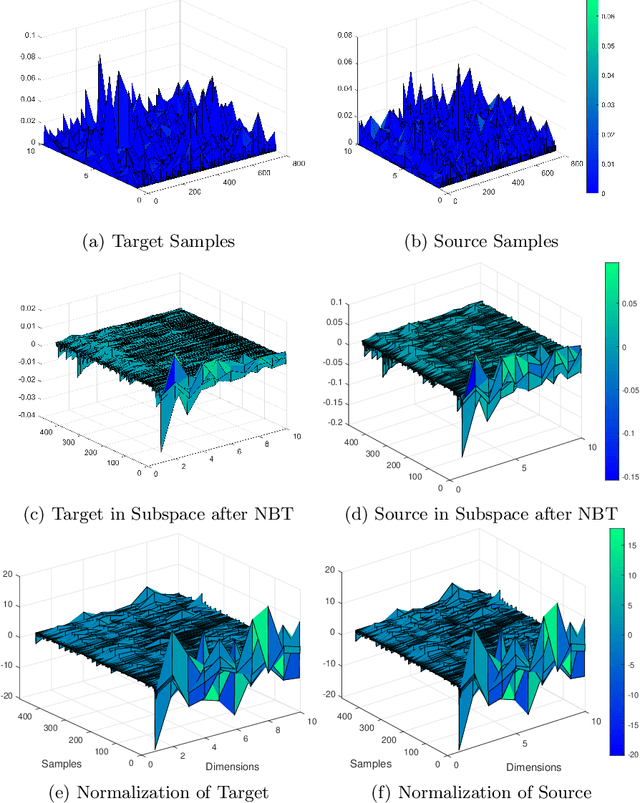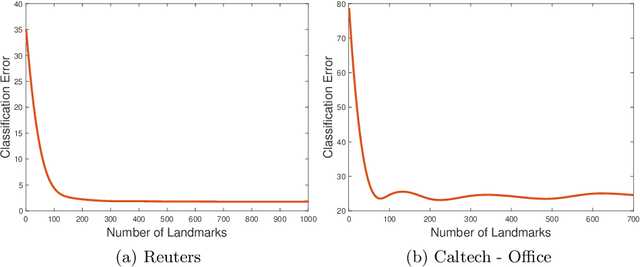Domain Adaptation via Low-Rank Basis Approximation
Paper and Code
Jul 02, 2019



Transfer learning focuses on the reuse of supervised learning models in a new context. Prominent applications can be found in robotics, image processing or web mining. In these areas, learning scenarios change by nature, but often remain related and motivate the reuse of existing supervised models. While the majority of symmetric and asymmetric domain adaptation algorithms utilize all available source and target domain data, we show that domain adaptation requires only a substantial smaller subset. This makes it more suitable for real-world scenarios where target domain data is rare. The presented approach finds a target subspace representation for source and target data to address domain differences by orthogonal basis transfer. We employ Nystr\"om techniques and show the reliability of this approximation without a particular landmark matrix by applying post-transfer normalization. It is evaluated on typical domain adaptation tasks with standard benchmark data.
 Add to Chrome
Add to Chrome Add to Firefox
Add to Firefox Add to Edge
Add to Edge